Last Updated
There’s a pretty good chance that Cancun beaches in general will be filled with massive amounts of seaweed in the coming weeks. As reports indicate that large amounts of the foul smelling seaweed known as sargassum are slowly, but steadily making their way towards the shore. In Playa del Carmen authorities are trying to come up with creative ways to build up enough manpower to clean the local beaches. One of these solutions that they’ve come up with involves giving minor infractors the possibility of picking up sargassum as a form of community service. Doing so in an effort to avoid jail time.
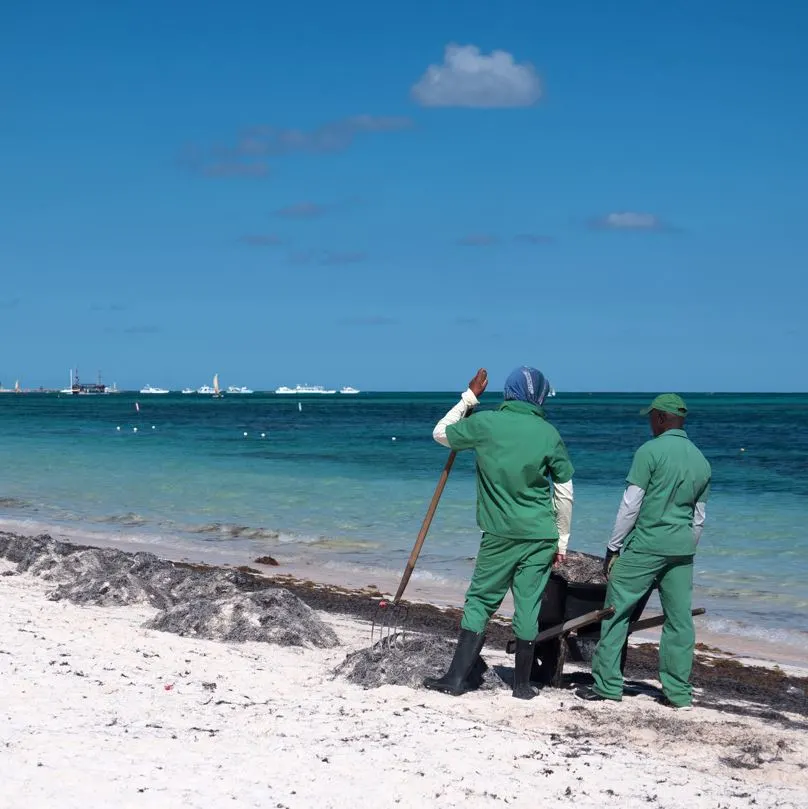
The initiative that is allowing people to avoid jail time contemplates will only apply to those who have committed “administrative infractions”. These administrative infractions are things like urinating in public, littering and consuming alcoholic beverages, on public roads. To put it simply, pretty much all of the minor infractions that tend to land rowdy tourists in the slammer, will now be payable through this form of community service.

It’ll ultimately be up to the judge whether a particular infraction can be paid in this manner. Local judges approved of this form of punishment in recent weeks. It was actually the Zomefat (the organization responsible for cleaning the beaches) that proposed this idea to Playa del Carmen judges. The director of the Zomefat institute, Lourdes Vargues Ocampo, had this to say about the initiative.
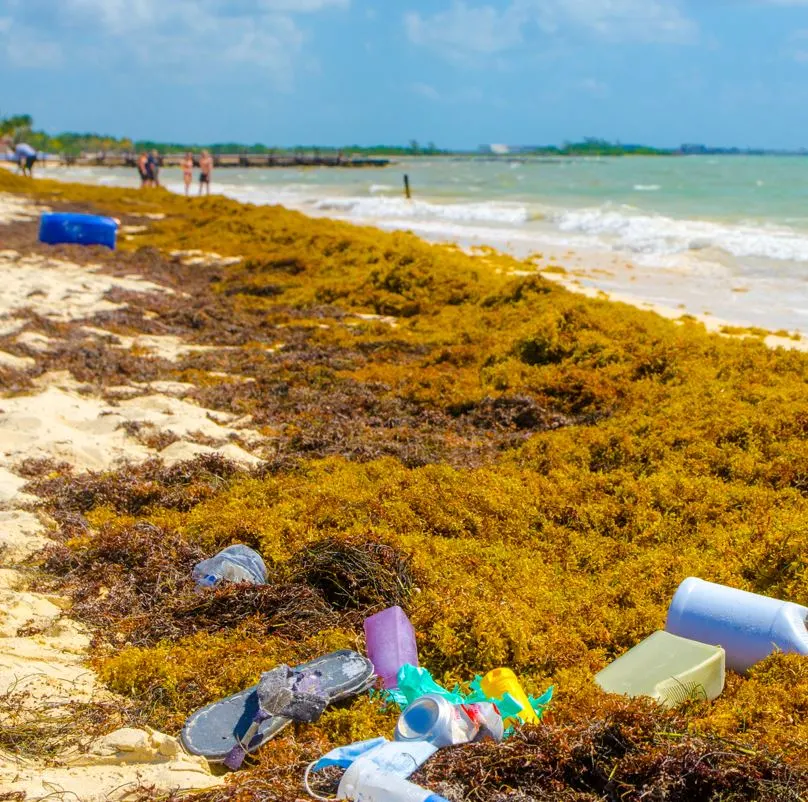
“We talked to the civic judges a week ago to propose this initiative of having people do community service instead of having to pay other types of fines. The decision to approve the initiative was made unilaterally. Many judges showed a keen interest in this idea.”
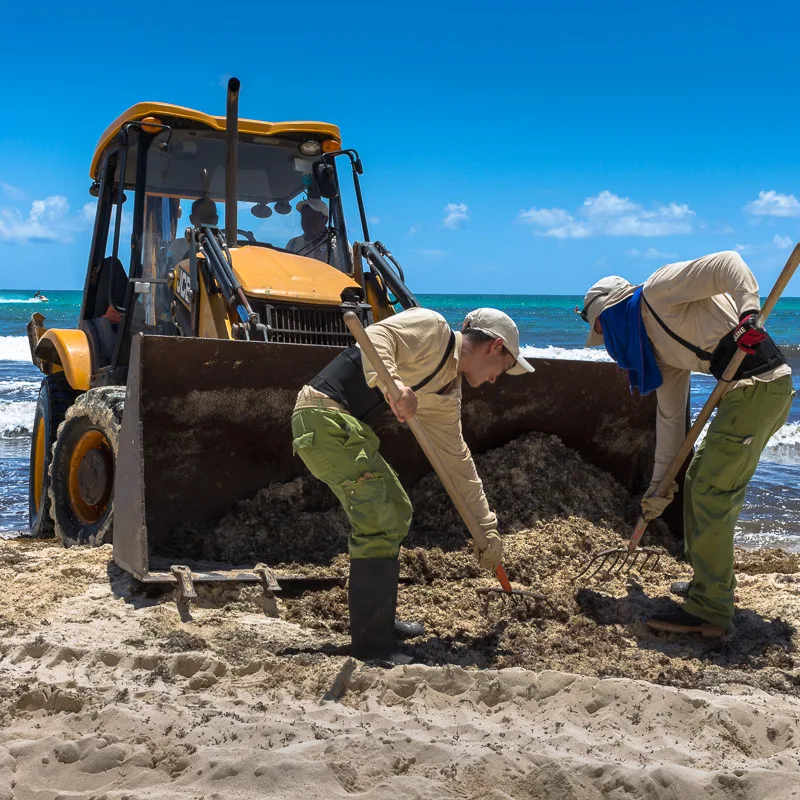
This Type of Community Service Eliminates Potential Fines or Jail Time
The director of Zomefat would go on to clarify that as things stand right now folks who opt to provide this community service will not be charged extra fines, or have to spend time behind bars to further pay their debt to society. The judges have the power to assign a specific amount of community service hours to infractors. Which they must complete in order to be properly released. There have already been quite a few people that have chosen this route. Lourdes Vargues made those numbers public saying,

“Sunday we had 15 people, (doing community service), Monday there were 11, and Tuesday there were 7. In doing this type of work they are able to meet the sanctions that the judges impose on them. This is not a form of forced labor. These people are not criminals, they are just folks who commited minor infractions.”
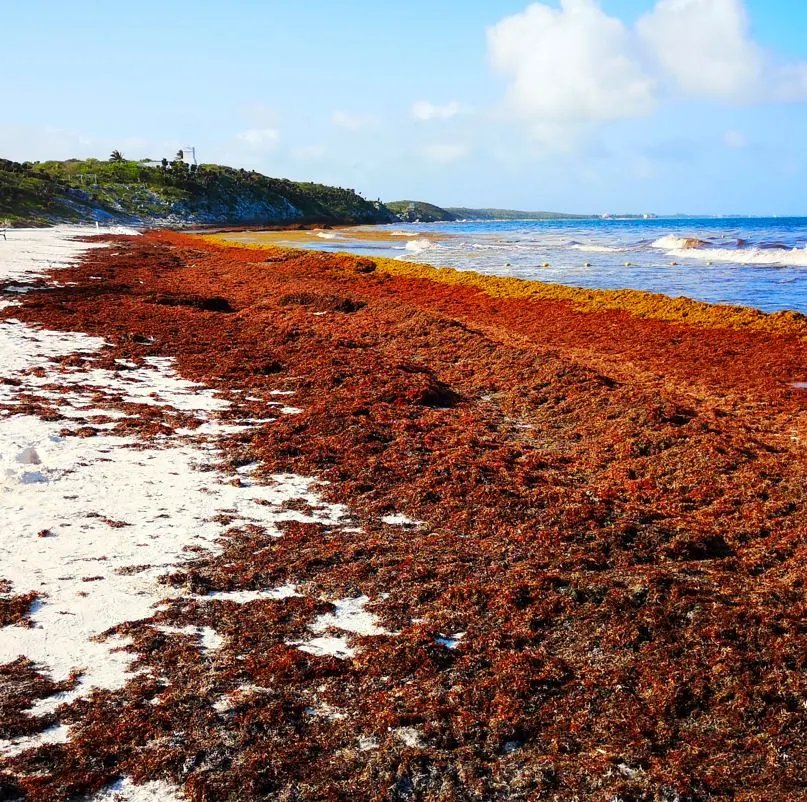
There Are Other Ways To Join A Brigade To Clean Up The Beaches
You don’t necessarily have to commit a crime to be on a brigade responsible for cleaning up beaches. In fact, infractors who are part of these brigades are the ones wearing the bright orange vests. To distinguish themselves as community service workers. While the rest of the folks also picking up Sargassum may very well be getting paid for the job that they’re doing.
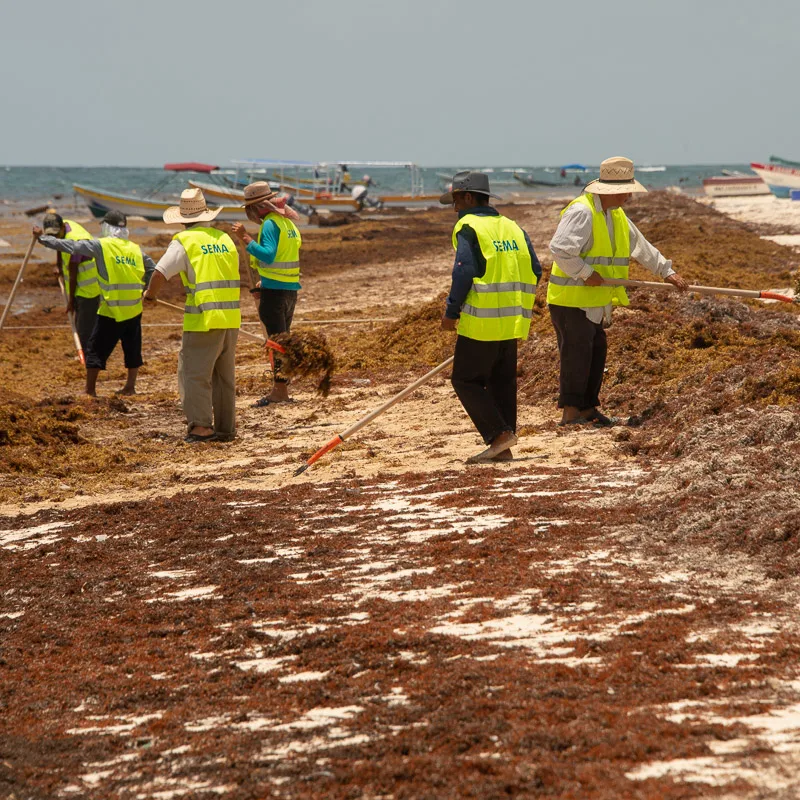
The Zomefat organization seems to be incredibly understaffed. So much so that they are offering a 9,000 MXN ( around 450 dollars) monthly salary to anyone willing to work cleaning up Playa del Carmen beaches alongside minor infractors. That may not seem like much to a lot of people. To put things into context though, the average salary that a Mexican worker makes is around 7,000 MXN per month. With a slight increase over the average salary, and the addition of community service workers Zomefat is hoping to create at least another 50-person team to clean up Playa del Carmen beaches.
Plan Your Next Cancun Vacation:
Traveler Alert: Don’t Forget Travel Insurance For Your Next Trip!
Choose From Thousands of Cancun and Riviera Maya Hotels, Resorts and Hostels with Free Cancellation On Most Properties
↓ Join the community ↓
The Cancun Sun Community FB group has all the latest travel news, conversations and tourism Q&A’s for the Mexican Caribbean

Subscribe to our Latest Posts
Enter your email address to subscribe to The Cancun Sun’s latest breaking news affecting travelers, straight to your inbox.
